Yearly, the global burden of maternal mortality has remained an issue of great importance, especially in low- and middle-income countries. With Nigeria currently ranking as one of the African countries with “extremely high” maternal mortality rates, according to Afro WHO, 2023.
This is also reflective in the low performance of these countries, including Nigeria, on the global healthcare index, as well as their low human development Index. Majorly because the scourge of maternal morbidity and mortality directly affect half of the world’s population – the female population – and indirectly, the other half. Thereby, impeding the global development in one way or the other.
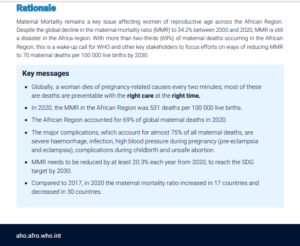
However, most of the leading contributions to this alarming mortality figures are very preventable and can be averted if every woman has access to safe, quality healthcare and socio-economic support. Hence, the international day of maternal health and rights is marked annually across the globe, with the aim of celebrating progress made in the maternal healthcare space and highlighting problems that still exist, with the aim of solving them.
This year, the Safer Hands Health Initiative – a Nigerian-based NGO dedicated to reducing maternal mortality and improving maternal health outcomes in the nation – in commemoration of the international day of maternal health and rights, would be holding her fourth Maternal Health Summit. And this year’s summit is focused on the theme, “The Current State of Maternal Health in Nigeria: Socio-economic Determinants and Implications”.
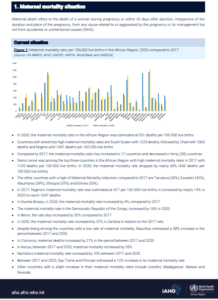
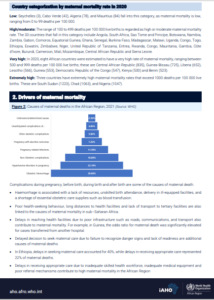
According to the convener of the summit over the years, Dr M. O. Agoyi Awoniyi highlighted that, “despite several ongoing interventions in the maternal and reproductive health space across Nigeria, our maternal mortality records are still significantly high. Which could be attributed to various socio-demo-economic factors and unequal distribution of these interventions across different communities and populations in the nation. Hence the theme for this year’s summit, to be discussed under the subthemes: “The role of healthcare professionals in Diaspora in improving maternal health in Nigeria”; “Synergy for local production and importation of maternal health medicines and supplies”; “Harnessing political involvement, public-private partnership and investment in improving maternal healthcare”; with project and research presentations to share “Experiences and Lessons from community based birth attendants and healthcare providers, RMNCAH (Reproductive, Maternal, Neonatal, Child and Adolescent Health) startups and organization”.
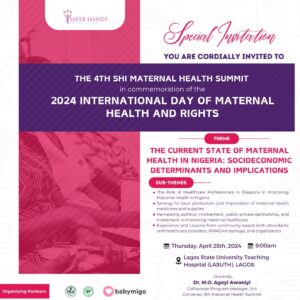
The summit scheduled to hold in LASUTH on the 25th of April 2024, would be having Professor Bosede Afolabi, Head of department/Consultant Obstetrician and Gynaecologist, LUTH as the keynote speaker. With various experts and relevant stakeholders coming together to participate in panel discussions and presentations. Some of the partners and sponsors for this year’s summit include: EthyPharm Nigeria, Remedial Health, Health Care Analytics (HCA) Consults, Medical Women’s Association of Nigeria, Lagos State Branch, Syncytium CMUL MBBS/BDS Class of 2017 among others.
With a targeted audience of health care workers, maternal health advocates, community health development specialists and representatives from major healthcare bodies across the country; at the end of the summit, it is expected that facts established, with difficulties and areas needing improvement identified, as well as possible solutions suggested would all be collated and circulated to appropriate authorities and agencies for further actions towards creating a positive change in the current state of maternal health in Nigeria.

About Author:
Dr Jegede Adedamola Oluwadamilare is a Medical Doctor and Public Health Enthusiast who currently works at Kensington Adebukunola Adebutu Foundation Medical Laboratory and Maternity Centre (KAAF MLMC), UNILAG, Lagos.

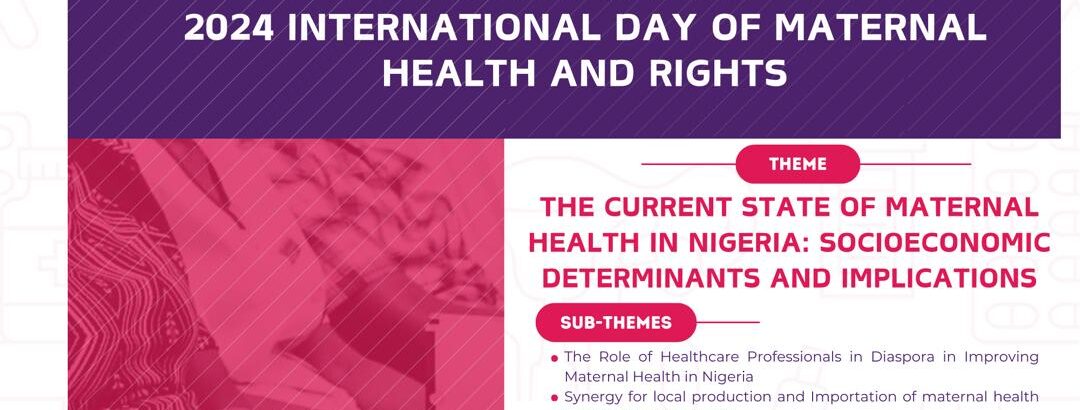
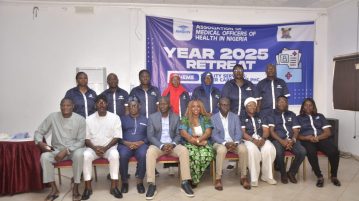
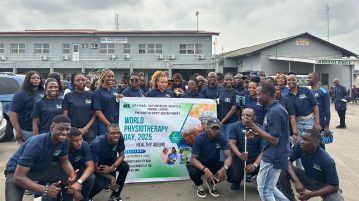
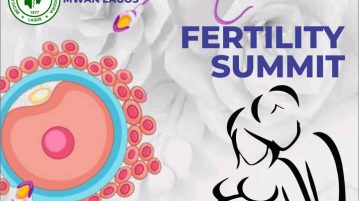
Discussion2 Comments
what are your phone numbers.
Dear Imieh,
You can always send us an email via imjceditor@gmail.com for all enquires.
Thank you.